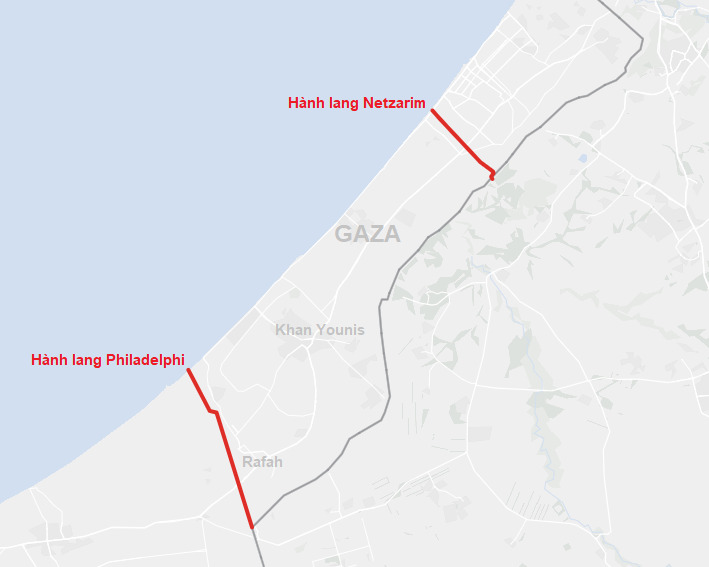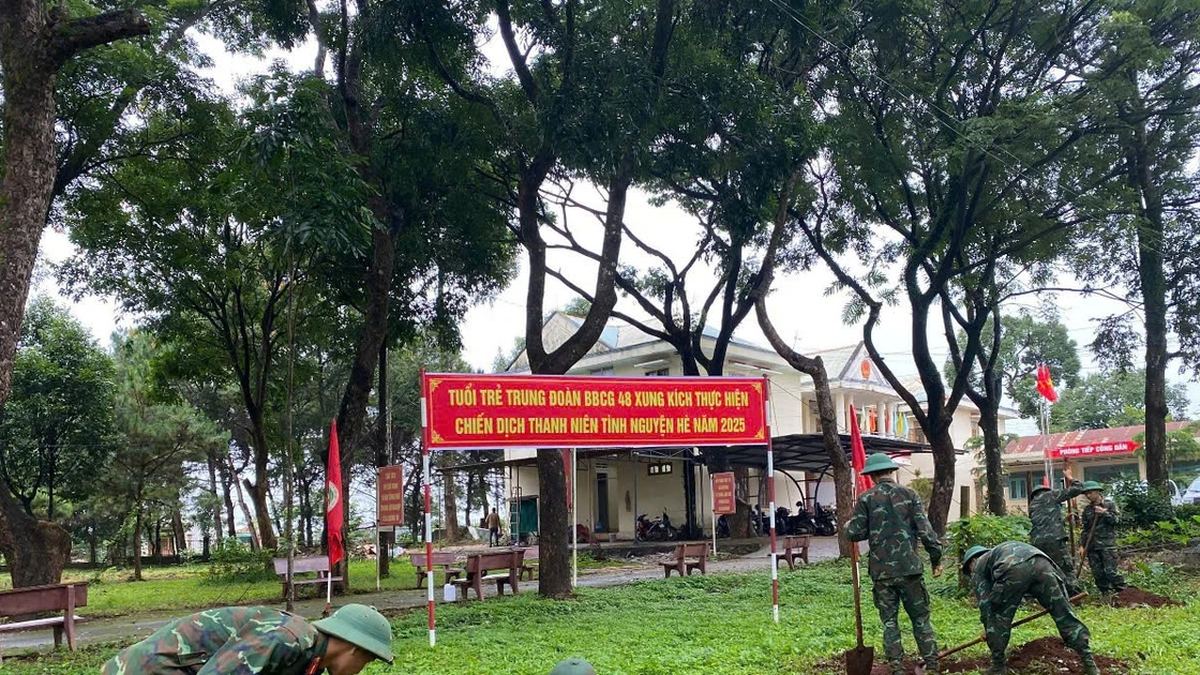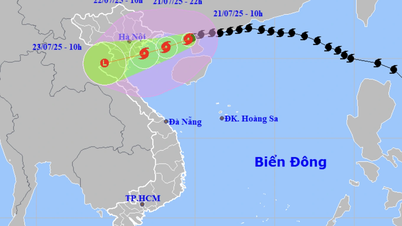According to 10 sources familiar with the US-brokered round of talks that ended last week, the disagreements stemmed from demands made by Israel after Hamas accepted a version of a ceasefire proposal announced by US President Joe Biden in May.
Hamas is particularly concerned about Israel's latest request to continue deploying troops along the Netzarim Corridor, a strip of land that Israel established in the Gaza Strip during the Israel-Hamas conflict that prevents Palestinians from freely moving between north and south Gaza, as well as at a narrow border strip between Gaza and Egypt known as the Philadelphi Corridor.
Israel's current control of the Philadelphia Corridor gives it control of Gaza's border with Egypt, the enclave's only border crossing that does not border Israel.

Gaza's Netzarim and Philadelphia corridors. Photo: OpenStreetMap
Hamas sees Israel as having changed its terms “at the last minute,” according to one source, and fears that any concessions Israel makes will require more in return. Last week, Israeli Prime Minister Benjamin Netanyahu’s office denied it had made new demands, saying its stance was based on a previous proposal.
The source said Hamas and some mediators saw this as an Israeli move to cancel its previous commitment to withdraw from the Netzarim Corridor and allow free movement inside Gaza.
The next round of talks is expected to take place in Cairo in the coming days, focusing on the US bridge proposal. Two Hamas officials said the US proposal includes several changes that Israel opposes, such as allowing "continued Israeli military presence" along the border crossings and releasing some Palestinian prisoners in exchange for hostages.
The official said the proposal included “immediate and significant benefits” for the people of Gaza and incorporated some of Hamas’ previous demands. Security officials in Egypt said Israel and Hamas appeared ready to resolve their differences on all areas except the Israeli withdrawal.
Hamas sources said the presence of Israeli troops along the corridors would mean continued Israeli occupation and prevent people from moving freely.
Two Hamas commanders said the main sticking point now was Israel's position that many of the released prisoners should be immediately deported and sent into exile outside Israel, the West Bank or the Gaza Strip. "For this reason, Hamas has refused to accept the US-Israeli text," one of the commanders said.
Ngoc Anh (according to Reuters)
Source: https://www.congluan.vn/thoa-thuan-ngung-ban-bi-can-tro-vi-israel-yeu-cau-duy-tri-quan-su-o-gaza-post308955.html






















![[Photo] National Assembly Chairman Tran Thanh Man visits Vietnamese Heroic Mother Ta Thi Tran](https://vphoto.vietnam.vn/thumb/1200x675/vietnam/resource/IMAGE/2025/7/20/765c0bd057dd44ad83ab89fe0255b783)













































































Comment (0)